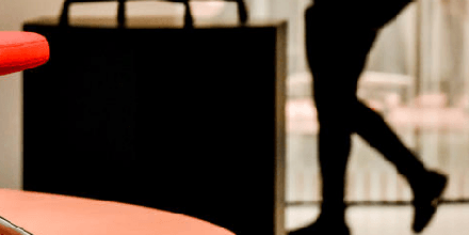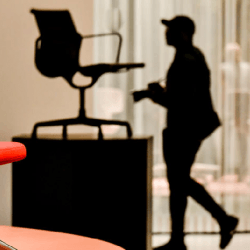November 26, 2018
Reducing commuting times could drastically reduce CO2 emissions
 A decrease in commuting times in the UK will reduce levels of carbon dioxide by 7.8 million tonnes per year by 2030, according to a new study by Regus. The economic study, carried out by independent researchers, found that if the growth in flexible workspace continues to increase, commuters in the country could save 115 million hours of commuting time per annum by 2030 from a turn to flexible working. Meanwhile, the nation which would see the largest annual carbon emission saving by 2030 is the United States. It is predicted to save nearly 960 million hours in commuting time, and with US commuters relying heavily on cars, this time saved translates to over 100 million tonnes of CO2.
A decrease in commuting times in the UK will reduce levels of carbon dioxide by 7.8 million tonnes per year by 2030, according to a new study by Regus. The economic study, carried out by independent researchers, found that if the growth in flexible workspace continues to increase, commuters in the country could save 115 million hours of commuting time per annum by 2030 from a turn to flexible working. Meanwhile, the nation which would see the largest annual carbon emission saving by 2030 is the United States. It is predicted to save nearly 960 million hours in commuting time, and with US commuters relying heavily on cars, this time saved translates to over 100 million tonnes of CO2.













 The vast majority (97 percent) of office workers in UK feel frustrated by their workplace environments, with many feeling the need to escape office life as a result. A new report from Staples has discovered that one-in-five (22 percent) end up browsing LinkedIn job ads for something better when they’re frustrated. As a result, job-hopping is prolific, with workers now predicted to have 11.7 jobs between the ages of 18 and 48. The expectation that the grass must be greener elsewhere is leaving most thinking about switching jobs. However, when they do end up jumping ship, many just experience a short-term fix. According to the study, a third (37 percent) get frustrated in their new office before the end of their first six months. The majority of office workers say they seek fulfilment (89 percent) at work, and for most (77 percent), the quality of their office workspace is a contributing factor in how fulfilled they feel.
The vast majority (97 percent) of office workers in UK feel frustrated by their workplace environments, with many feeling the need to escape office life as a result. A new report from Staples has discovered that one-in-five (22 percent) end up browsing LinkedIn job ads for something better when they’re frustrated. As a result, job-hopping is prolific, with workers now predicted to have 11.7 jobs between the ages of 18 and 48. The expectation that the grass must be greener elsewhere is leaving most thinking about switching jobs. However, when they do end up jumping ship, many just experience a short-term fix. According to the study, a third (37 percent) get frustrated in their new office before the end of their first six months. The majority of office workers say they seek fulfilment (89 percent) at work, and for most (77 percent), the quality of their office workspace is a contributing factor in how fulfilled they feel.
 Over a quarter of businesses plan to hire temporary or contract staff in the next 12 months to help plug skills shortages created by digitalisation as more than half of CEOs are concerned about a lack of digital skills within their organisation. This is according to the Robert Half 2019 Salary Guide which argues that technology is reshaping businesses; with two in five UK organisations (38 percent) considering digitalisation as the main evolving force in the workplace today. This shift has created demand for a new set of skills, such as DevOps, data visualisation, data management and analytics. While softer skills such as resilience, adaptability and critical thinking remain key characteristics in potential employees, a third (31 percent) of employers state that a candidate’s technical skillset is their most important consideration when making a new hire. Around 1.6 million1 (28 percent) UK businesses plan to hire temporary or contract staff in the next twelve months, to combat the lack available talent required, which is creating a critical skills gaps in the workplace.
Over a quarter of businesses plan to hire temporary or contract staff in the next 12 months to help plug skills shortages created by digitalisation as more than half of CEOs are concerned about a lack of digital skills within their organisation. This is according to the Robert Half 2019 Salary Guide which argues that technology is reshaping businesses; with two in five UK organisations (38 percent) considering digitalisation as the main evolving force in the workplace today. This shift has created demand for a new set of skills, such as DevOps, data visualisation, data management and analytics. While softer skills such as resilience, adaptability and critical thinking remain key characteristics in potential employees, a third (31 percent) of employers state that a candidate’s technical skillset is their most important consideration when making a new hire. Around 1.6 million1 (28 percent) UK businesses plan to hire temporary or contract staff in the next twelve months, to combat the lack available talent required, which is creating a critical skills gaps in the workplace.




 A new survey of professional, mainly management-level women has revealed a lack of support for maternity returners by employers. According to the survey by working parents website
A new survey of professional, mainly management-level women has revealed a lack of support for maternity returners by employers. According to the survey by working parents website 













November 23, 2018
Communities are the key factor to rapid growth of coworking
by Petr Boruta • Comment, Coworking, Property, Workplace design
More →